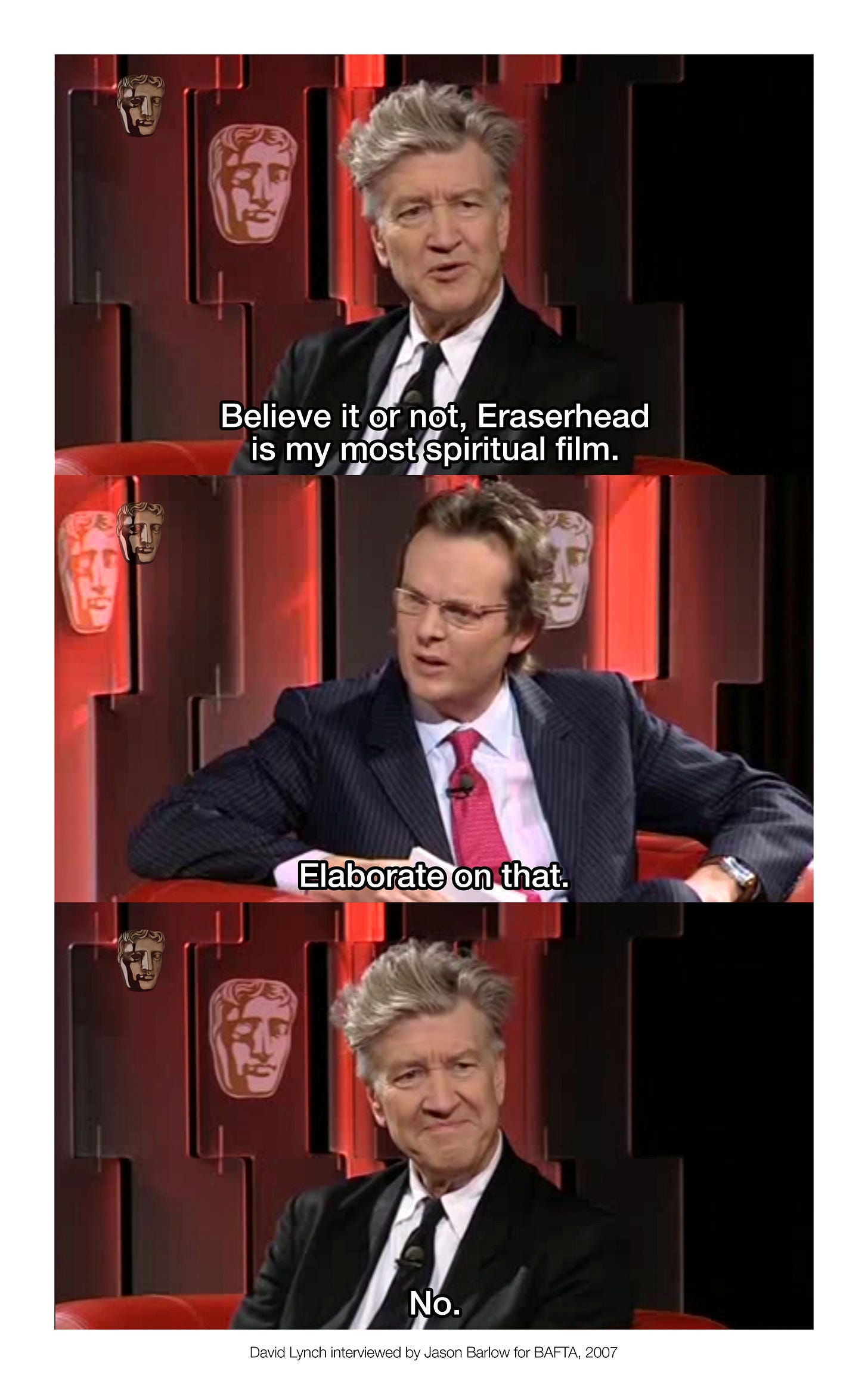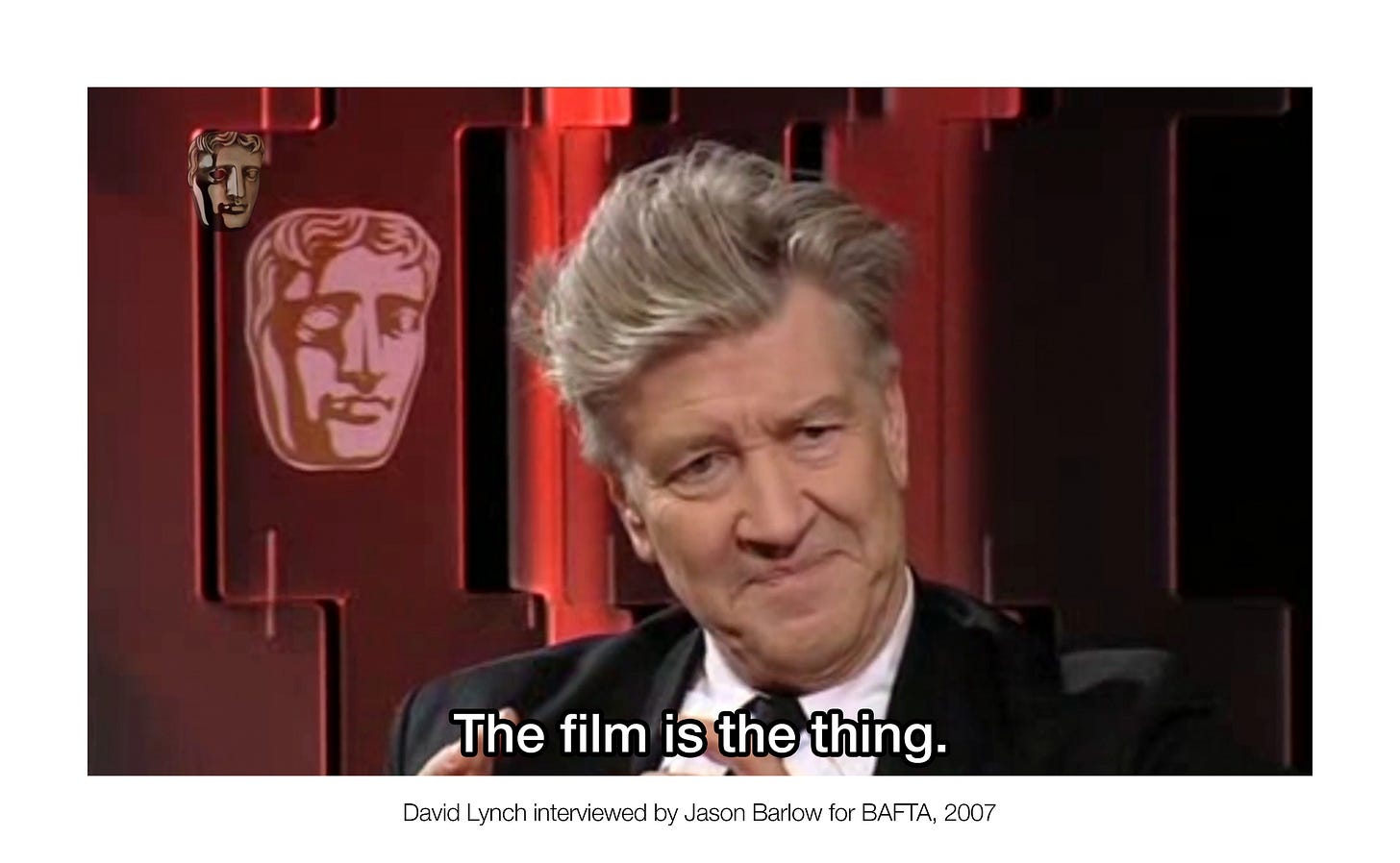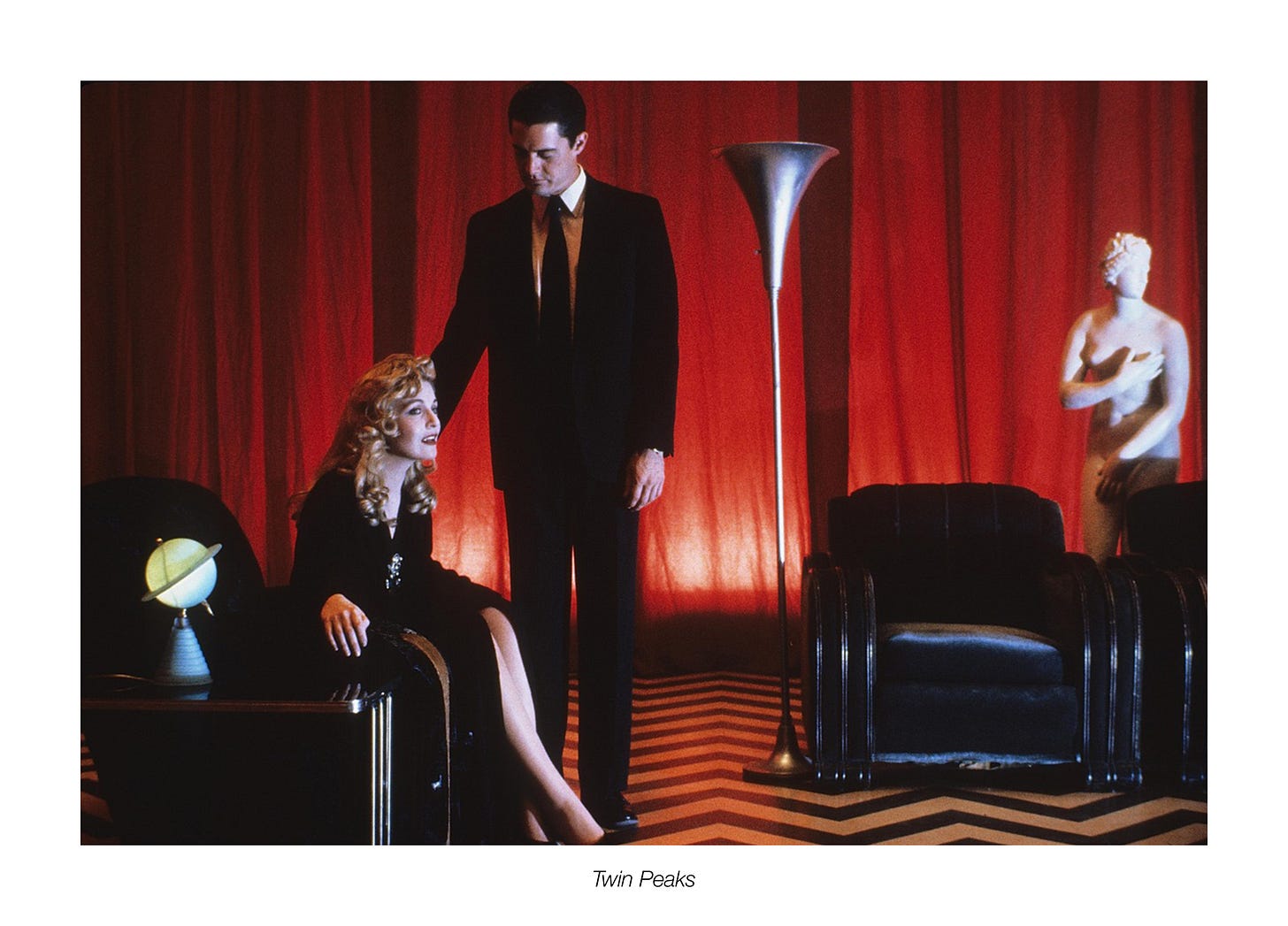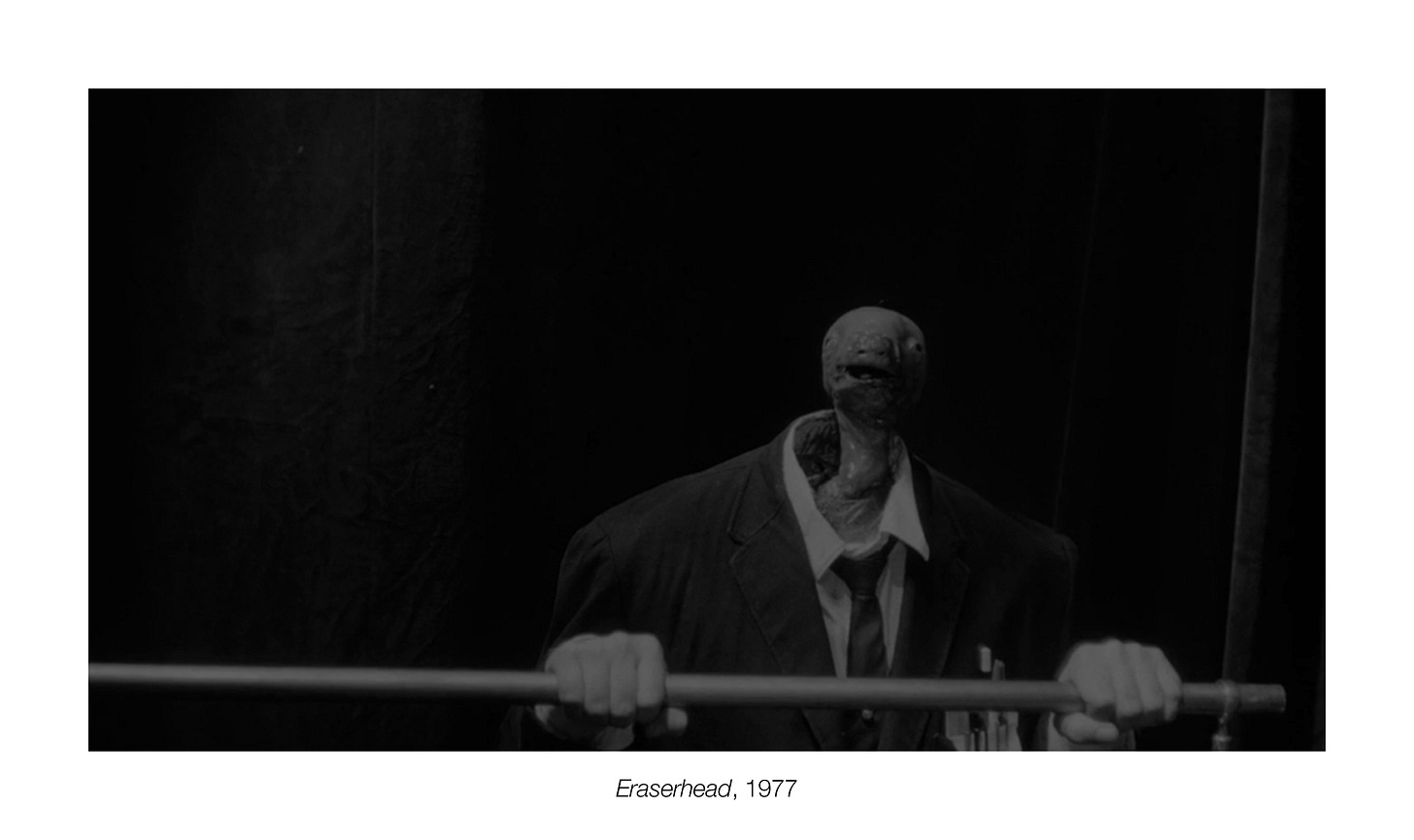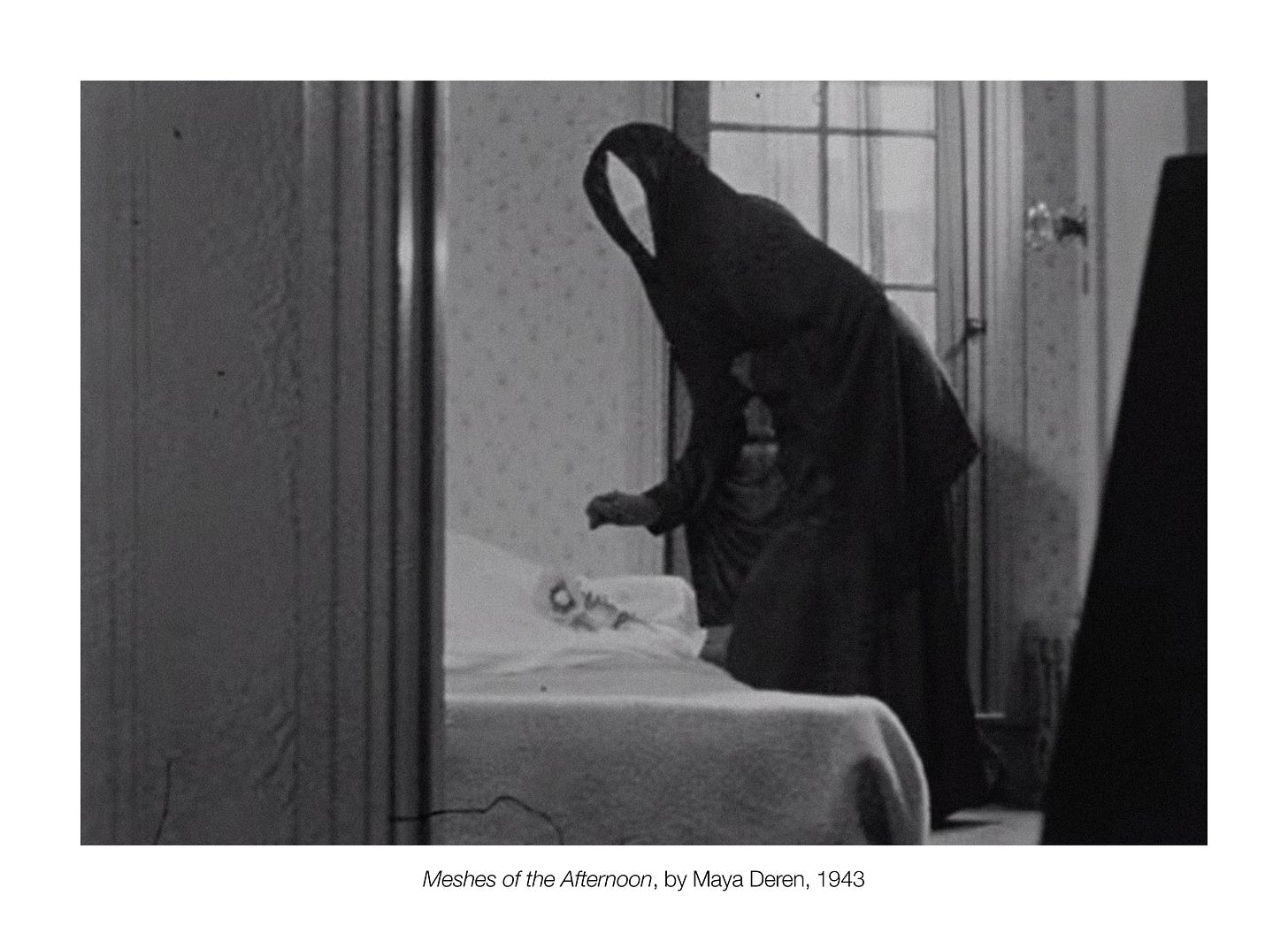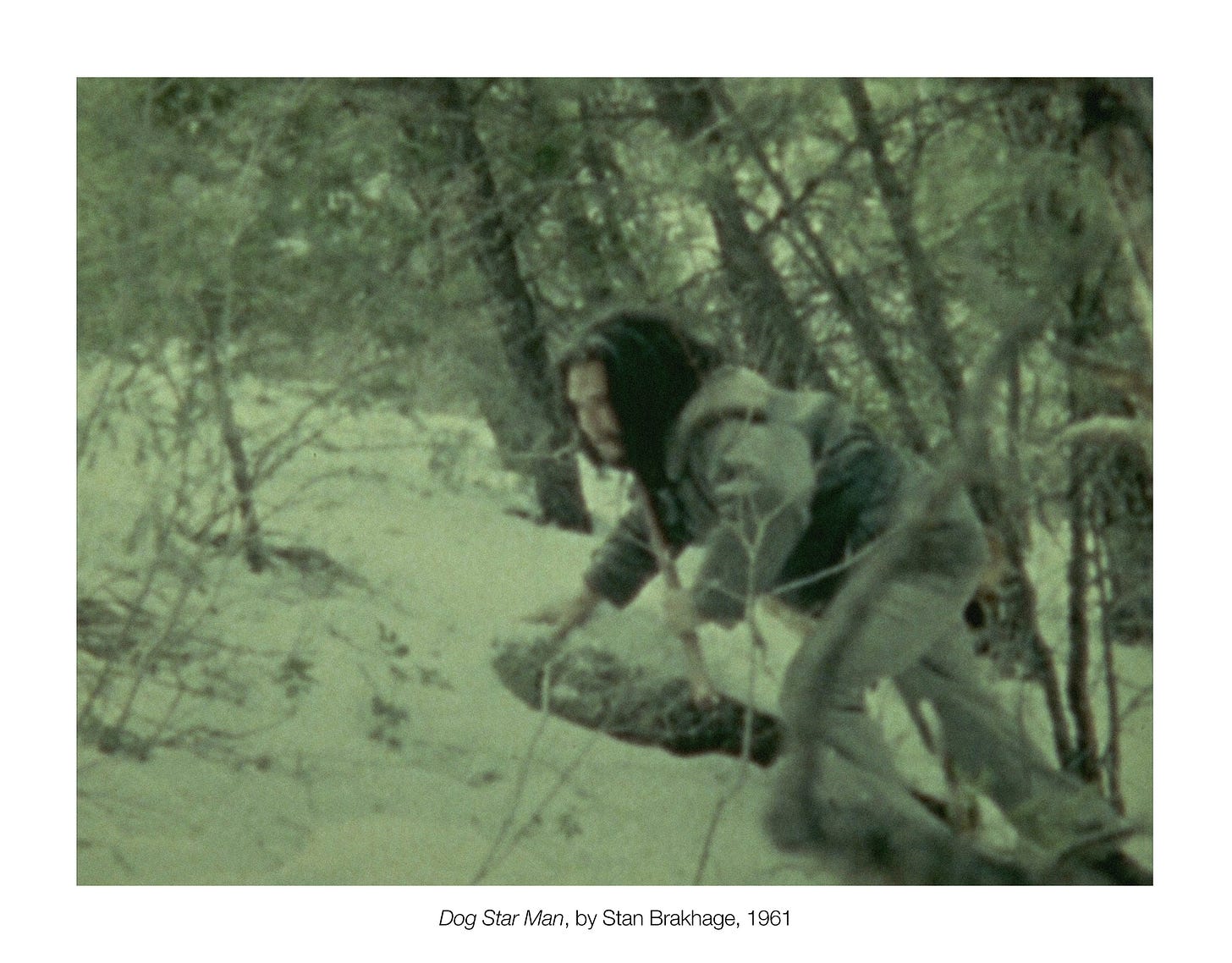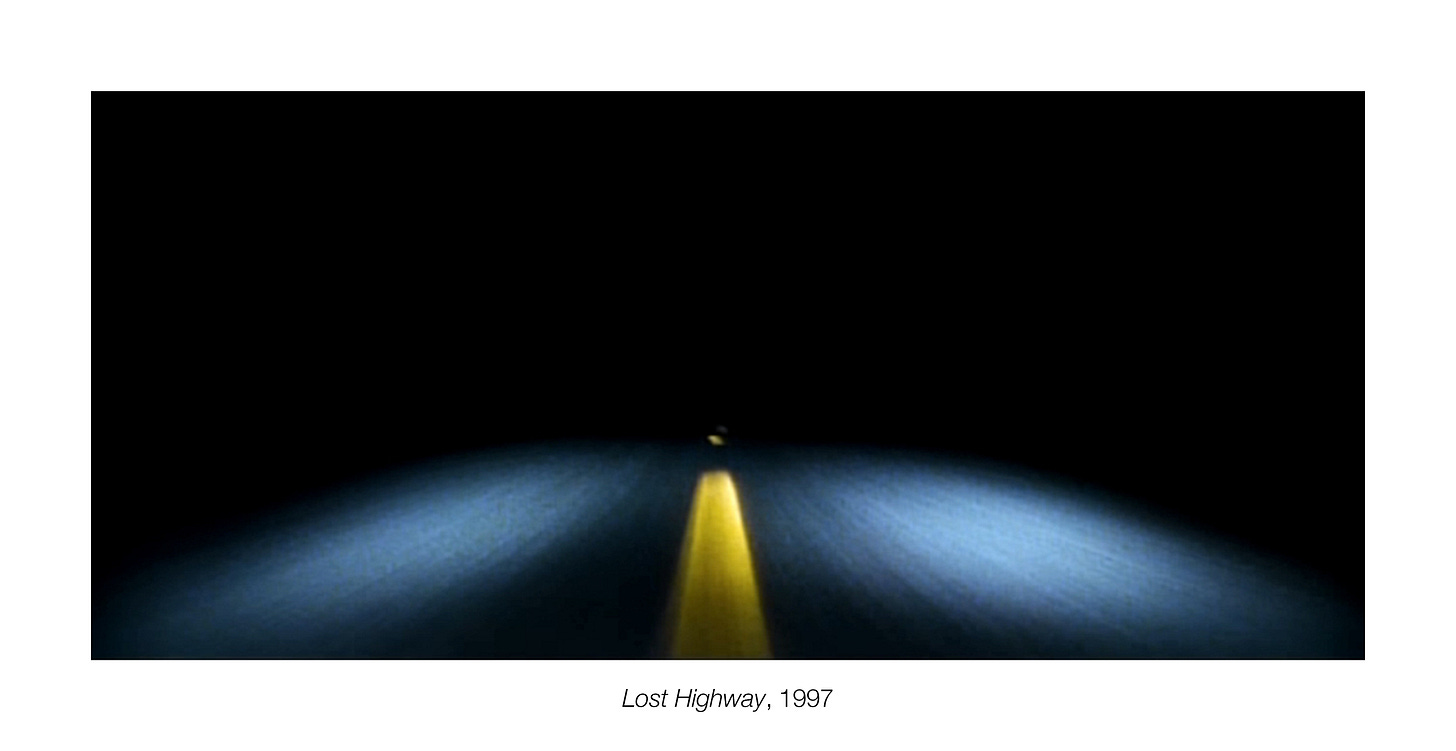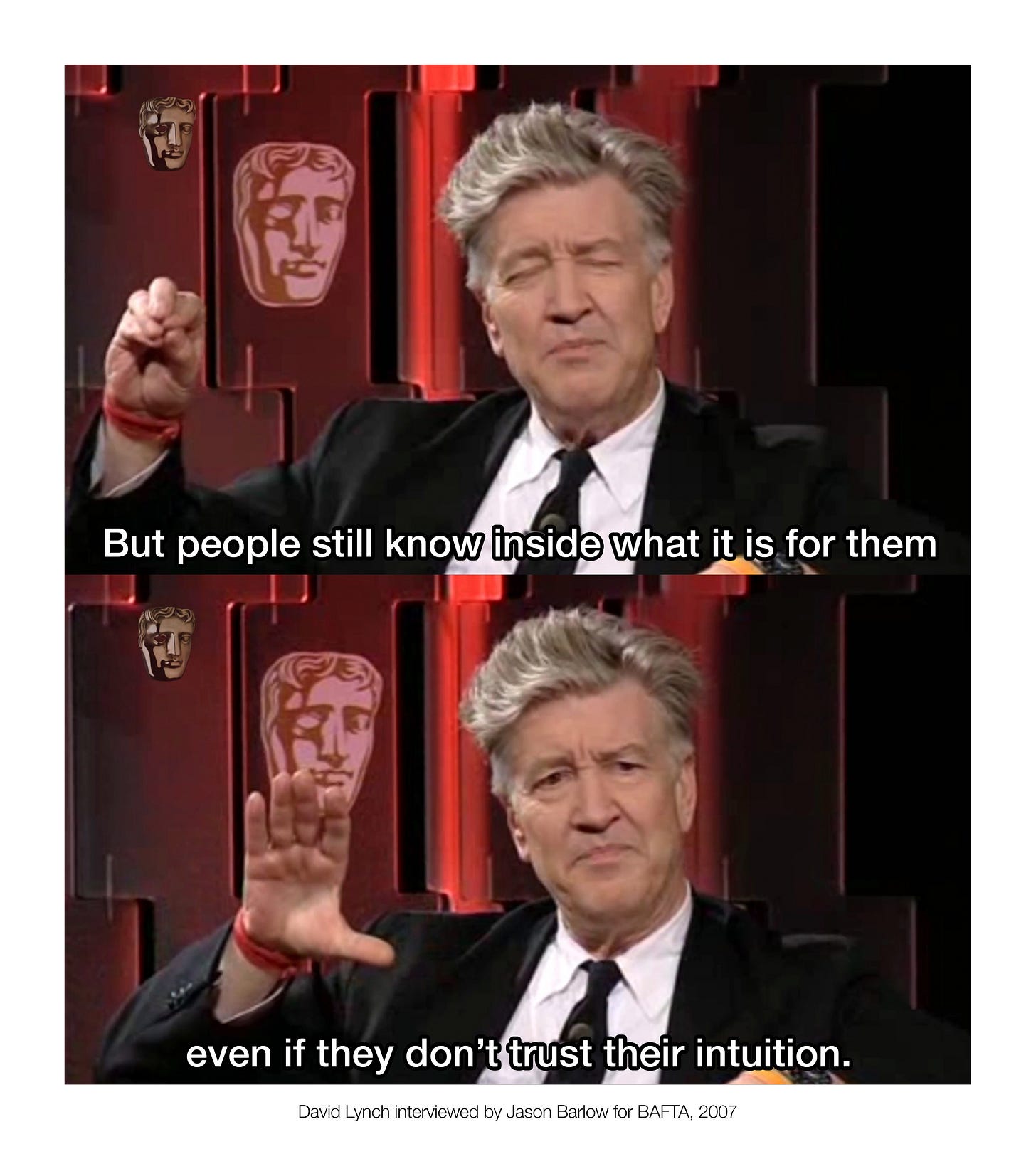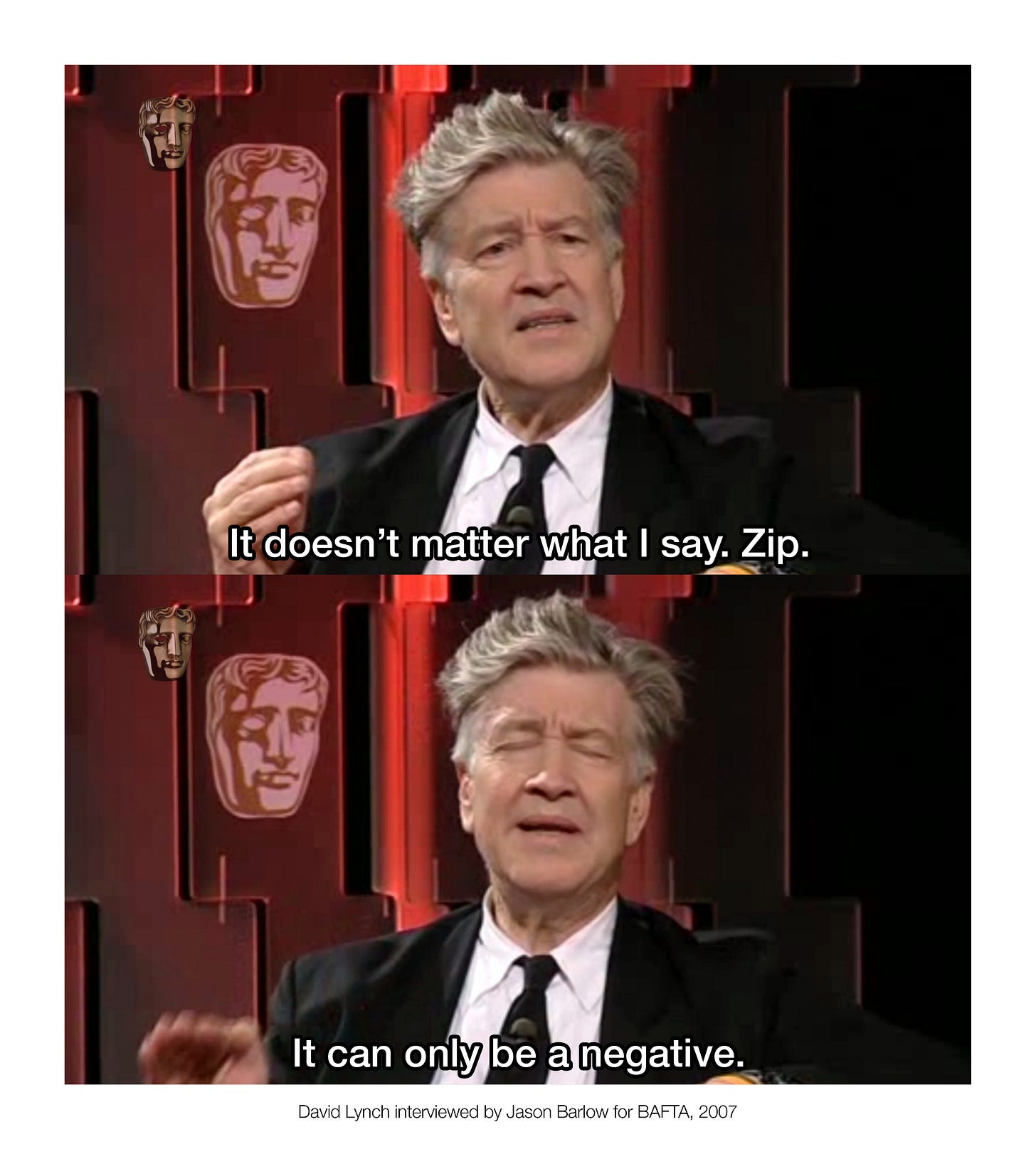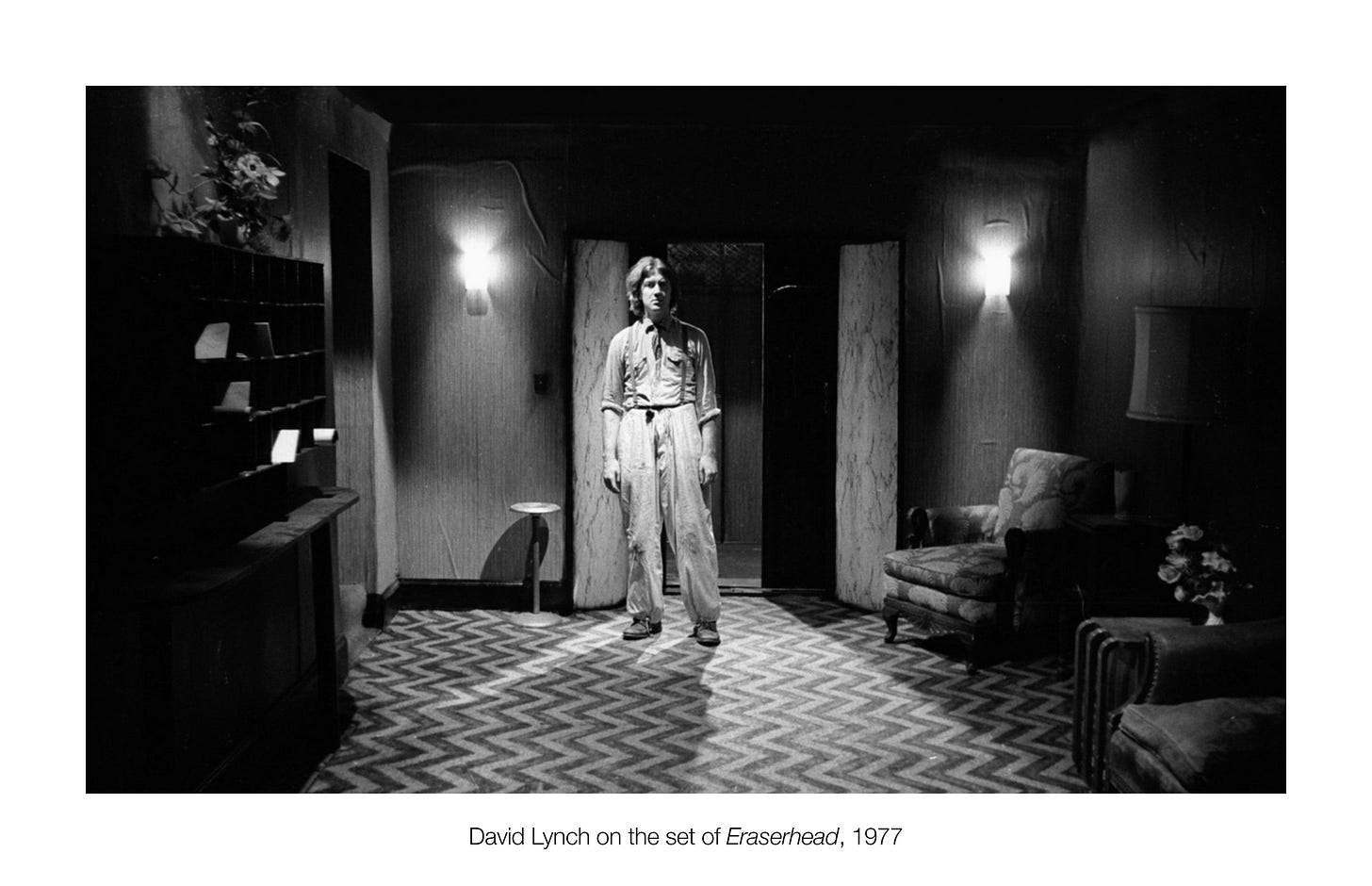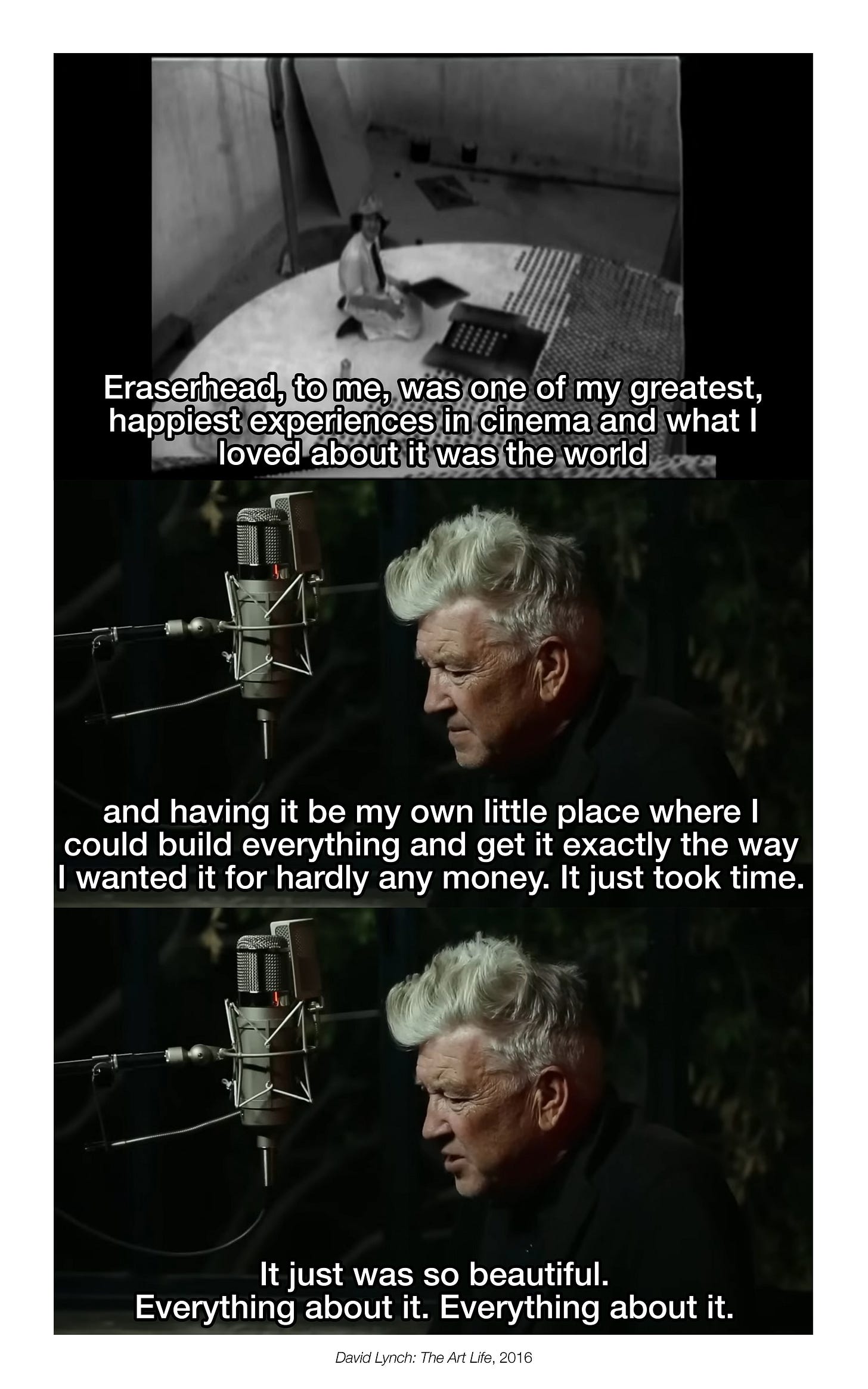If you do not understand why Eraserhead is David Lynch’s most spiritual film, you do not understand David Lynch and that’s fine. You don’t need to understand David Lynch to understand David Lynch. Let me elaborate on that.
Later in that famously memed interview, Jason Barlow continues to push for meaning and eventually David Lynch does elaborate. Not in a way many will find satisfactory, but in a way pivotal to understanding David Lynch.
“The film is the thing, the film is the thing,” he insists. “You work so hard to get, you know, after the idea comes, to get this thing built, all the elements to feel correct, the hole to feel correct in this beautiful Language called Cinema. And the second it’s finished people want you to change it back into words and it’s very very um saddening. It’s um a torture. It’s the film, the Language of Cinema.”
With his heartbreaking death, the inevitable discourse and dissection of his work in every which way has again unveiled the torture he felt during this interview.
The art of David Lynch is not a puzzle to be solved. There is no secret code for Twin Peaks or ultimate explainer for Mulholland Drive.
In his 1967 essay The Death of the Author, Roland Barthes argues “once the Author is gone, the claim to ‘decipher’ a text becomes quite useless. To give an Author to a text is to impose upon that text a stop clause, to furnish it with a final signification, to close the writing.”
David Lynch goes back to this idea over and over again, reiterating in interview after interview.
“I always say, like somebody wrote this book and the poor guy died, so you can’t dig him up and ask him, you know, what this book means. You just love the book and you come to your own conclusion.”
As a viewer, we yearn to escape reality and lose ourselves in something new and interesting. In this new reality we look for meaning and reason like we did in our old reality. A good filmmaker will harness this vulnerability and use it to guide the viewer through a world in a way that invokes a certain reaction in the viewer. Hopefully it’s the reaction the filmmaker intends, but either way, a reaction is always intended.
Cinema is so devious in its ability to manipulate and few do it well, if at all. Video art, especially non-narrative or what could be deemed something like abstract video art, is an exercise in pure manipulation of the viewer through the Language of Cinema.
A good work of video art, like say Meshes of the Afternoon by Maya Deren or Dog Star Man by Stan Brakhage, is able to do more than tell a story. The viewer has an experience.
Not many filmmakers make films as an experience. They can tell a story and occasionally they even making it entertaining, but David Lynch takes the viewer on a rollercoaster ride through a funhouse of dreams.
His characters don’t simply act anxious or say they feel nervous. The camera twists, zooms and spins until you feel anxious. The piercing buzz swells until your hair stands on end and you feel nervous. The flash of the grotesque causes a twist in your subconscious. You get lost in the dream because you are lost in the dream.
The rollercoaster ride means what it means. You feel what you feel. As with all art.
“The more abstract a thing gets,” he continues, “the more varied the interpretations. But people still know inside what it is for them, even if they don’t trust their intuition.”
The answer to What does it mean? is always How does it make you feel?
David Lynch elaborates, “If some girl named Sally comes out of the theater saying ‘I don’t have a clue what that means.’ She goes over with Bob and Jim to get a cup of coffee. Bob starts talking about what he thinks it is because he knows exactly what it is. He starts talking, 5 seconds later Sally is saying ‘no no no no it’s not that’ and all these things comes out of Sally. So Sally really did know for herself. That’s the beauty of it. It’s just like life, you see the same things but you come up with many many different things as you go along as a detective.”
Still unsure, Jason Barlow follows up with another push about meaning, this time of Mulholland Drive, “Okay, Detective Jason thinks it’s a ghost story. Is it a ghost story?”
“It’s a ghost story for you.”
“We want your,” Jason stumbles, “we want the vision.”
“No you you have everything in the film. That’s the thing. It doesn’t matter what I say. Zip. It can only be a negative. The thing is built so you don’t want to take anything away and you don’t want to add anything to it. It’s complete. That’s it and that’s it.”
Eraserhead is David Lynch’s most spiritual film because it is David Lynch’s most spiritual film. To elaborate is to destroy what it means to you.
The documentary David Lynch: The Art Life ends with him saying:
“Eraserhead, to me, was one of my greatest, happiest experiences in cinema and what I loved about it was the world and having it be my own little place where I could build everything and get it exactly the way I wanted it for hardly any money. It just took time. It just uh was so beautiful. Everything about it. Everything about it.”
Discussion about this post
No posts




